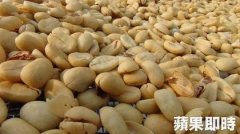Does Tanzania's single bean taste good? the planting and processing of Tanzania's single bean

Professional barista communication, please pay attention to coffee workshop (Weixin Official Accounts cafe_style)
Tanzania Tanzania
Population: 4,492,900
Tanzania produces reasonable quantities of Robusta beans, concentrated in the northwest, near Lake Victoria. The rest of the area is used to grow coffee beans at high altitudes.
KILIMANJARO
This region is Tanzania's oldest Arabica growing region, and it is no surprise that this region has had plenty of time to establish its international visibility and reputation. The long tradition of coffee production has established good infrastructure and equipment, but many of the existing coffee trees are old and have low yields, and coffee beans are increasingly facing competition in terms of yield.
Altitude: 1050-2500m
Harvest: July-December
Varieties: Kent, Bourbon, Typica, Typica/Nyara
RUVUMA
The area, named after the Ruvuma River, is located at the southernmost tip of Tanzania. The coffee growing area surrounds the Mbingo region, which is widely believed to have the potential to produce high-quality coffee beans despite the lack of economic access in the past.
Altitude: 1200-1800m
Harvest: June-December
Varieties: Kent, Bourbon, Bourbon derivatives such as N5 and N39
Gourmet coffee is soft in acidity, inviting in aroma and an absolute value treat.
Tanzania's coffee exports occupy an important position in the entire national economy. Bean berry coffee is produced in large quantities and is said to be stronger than regular coffee. Generally speaking, Tanzanian coffee beans are of exceptional quality. For example, premium Tanzanian Chagga AA coffee is produced in Moshi district near Kilimanjaro.
AA), known for its full-bodied, aromatic quality.
The coffee beans produced from here are all Kilimanjaro coffee exports, but in addition to Kilimanjaro Mountain, there are several major coffee producing areas in Tanzania, and there are many small farms operating in other areas. Most small farms also have several hundred acres of planting area. Some have their own washing equipment and bean drying fields, but the graded treatment still needs to pass through large processing plants. Tanzania has a long history of growing coffee, and even small farms can handle good quality coffee beans.
Drinking tanzanian coffee, especially peaberry, is always impressive. Coffee is as simple, straightforward and warm as tanzania's national character. Its refreshing acidity and medium body complement sweet citrus and floral aromas. This coffee tastes great both hot and iced. With orange or berry, it will show its bright flavor. You can feel: different ethnic groups produce different coffee flavors, and the same land breeds coffee trees and people at the same time.
Tanzania's coffee beans are of exceptional quality. They are grown in the Moshi region near Mount Kilimanjaro. The mountain areas between 3,000 and 6,000 feet high are the best places to grow coffee. Fertile volcanic ash gives the coffee a strong texture and soft acidity. It exudes a delicate fragrance, and contains wine and fruit aromas, aftertaste is endless. After drinking Kilimanjaro coffee, you will always feel a soft and mellow earthy taste at the corner of your mouth. Coffee gourmets often use words like "wild" or "wild" to describe it. It can be said that pure Kilimanjaro coffee is "the most African coffee." Kilimanjaro AA is the highest level of beans, its full particles, pure flavor, rich and refreshing, all aspects of quality are first-class. It is usually milder in acidity than Kenyan coffee and stimulates the middle and sides of the tongue evenly, feeling a bit like the sourness of tomatoes or soda. After moderate or moderate baking, there is a strong aroma, and then ground into fine powder, add boiling water on a pot, call friends around to taste, suddenly feel fragrant overflowing, mouth fluid. Tanzania's famous coffee brands are Africafe, Tanica Cafe, Kilimanjaro, etc., and their quality is much better than the Nespresso coffee we often drink. Tanzanian coffee has long been loved by Europeans and ranks among the famous brands. Europeans give Tanzania coffee the nickname "coffee gentleman", Chinese coffee connoisseurs will it and "coffee king" blue mountain,"coffee lady" mocha and called "coffee three swordsmen".
Coffee is one of Tanzania's main cash crops, ranking fourth after cotton, tobacco and cashew nuts among Tanzania's export crops, mainly exported to Italy, Japan and the United States. Coffee exports occupy an important position in Tanzania's national economy. Tanzania's main coffee-producing area is located at the foot of Mount Kilimanjaro, which has rich volcanic soil. Some coffee trees planted here are more than 100 years old. The earliest coffee was introduced from Kenya by Christians. Coffee trees must be carefully cared for, weeded, fertilized, and old branches must be cut off to grow new branches to maintain the quality of coffee beans. The processing plant is located near the town at the foot of the mountain, which is convenient for processing coffee beans. Many of the farm owners are families who have migrated here for generations. Farm owners are Indian, Nordic, English, and of course local, but most of them are small farms. However, farm and treatment yard managers are mostly local. Labor is cheap in Tanzania, so much of the work of tending farms, pruning and maintaining coffee plantations depends on manual processing rather than machines. During the coffee growing season, coffee workers 'job is to manually inspect and pluck leaves that are sick or infested. Coffee processing in Tanzania is highly manual, but it also creates jobs for locals and increases family income. Workers were paid by the amount of coffee they picked, and small farm women would bring coffee to the farm in bags they made by hand.
Political instability and pest infestation have disrupted Tanzania's coffee industry, leading to a decline in overall coffee levels and instability in quality, which in turn has led to lower prices, which usually lead to further declines in the coffee industry. More notably, it is estimated that more than 12 per cent of the Arabica coffee grown in northern Tanzania from 1969 to 1985 was smuggled into Kenya. However, the coffee industry has recently shown signs of improvement. Although the progress is slow, it is encouraging because Tanzania's coffee is of excellent quality.
In the past, Tanzania's coffee industry has been dominated by plantation cultivation, but now more than 85% is cultivated by smallholders. Many small farmers have formed cooperative organizations, the most important of which is the Kilimanjaro Cooperative Alliance
Cooperative Union (KNCU). Tanzanian Coffee is sold at auction by Tanzanian Coffee Marketing.
Board (TCMB) is sold to private exporters. In the 1980s, most coffee sales in Tanzania shifted from auctions to direct sales to the Tanzanian Coffee Marketing Board. This has changed. The coffee industry is being reformed to allow individuals or groups to buy coffee in the future. Coffee will also be graded in different ways to attract buyers from Germany, Finland, Belgium and Japan.
Important Notice :
前街咖啡 FrontStreet Coffee has moved to new addredd:
FrontStreet Coffee Address: 315,Donghua East Road,GuangZhou
Tel:020 38364473
- Prev

How to deal with Kenyan single bean and how to divide the grade of Kenyan single bean?
For professional baristas, please follow the coffee workshop (official Wechat account cafe_style) basic information on raw beans: producer: farmers around Kato Boya processing Plant (Gatomboya Factory): Neri County, Central Province of Kenya (Nyeri County/Central Province/Kenya) altitude: 1750-1900m treatment: full water washing, elevated sun-dried varieties:
- Next

The production area of single bean in Tanzania introduces how to brew single bean in Tanzania.
Communication of professional baristas Please pay attention to Coffee Workshop (Wechat official account cafe_style) due to political instability, coupled with rampant diseases and insect pests, the coffee industry in Tanzania has been damaged, leading to a decline in the overall level of coffee and instability in quality, which in turn lead to lower prices, which are usually the result of a further decline in the coffee industry. What's more worth mentioning is that it is estimated
Related
- Does Rose Summer choose Blue, Green or Red? Detailed explanation of Rose Summer Coffee plots and Classification in Panamanian Jade Manor
- What is the difference between the origin, producing area, processing plant, cooperative and manor of coffee beans?
- How fine does the espresso powder fit? how to grind the espresso?
- Sca coffee roasting degree color card coffee roasting degree 8 roasting color values what do you mean?
- The practice of lattes: how to make lattes at home
- Introduction to Indonesian Fine Coffee beans-- Java Coffee producing area of Indonesian Arabica Coffee
- How much will the flavor of light and medium roasted rose summer be expressed? What baking level is rose summer suitable for?
- Introduction to the characteristics of washing, sun-drying or wet-planing coffee commonly used in Mantenin, Indonesia
- Price characteristics of Arabica Coffee Bean Starbucks introduction to Manning Coffee Bean Taste producing area Variety Manor
- What is the authentic Yega flavor? What are the flavor characteristics of the really excellent Yejasuffi coffee beans?

